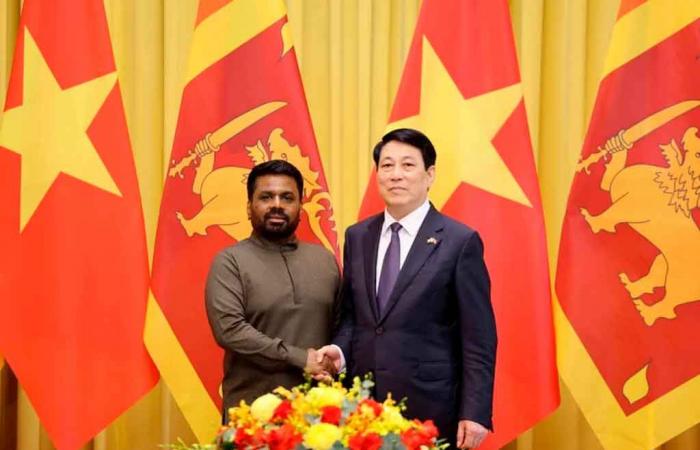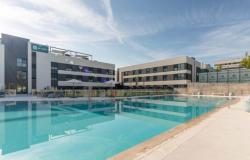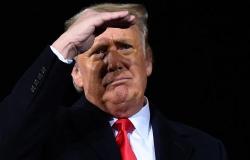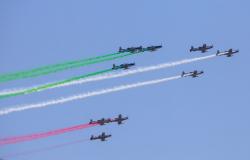This was made known by President Vietnamese, Luong Cuong, at a joint press conference offered with his Esryanqués counterpart, Anura Kumara Dissanayaka, who makes a state visit to this country of Southeast Asia, which will conclude tomorrow.
According to Cuong, both parties promised to apply more energetic measures to increase bilateral trade and that this reach an amount of one billion dollars annually, as well as to consider the possibility of negotiating and signing a free trade agreement.
The leaders also advocated to strengthen collaboration in areas such as the maintenance of peace, maritime security, prevention and control of transnational crime and the response to traditional and non -traditional security challenges, and thus contribute to the protection of the national security interests of each country.
They also spoke for prioritizing and expanding collaboration in other important fields such as agriculture, tourism, education, information and communication, cultural exchange, Buddhism and opening of direct flights between the two nations.
The two parties also agreed to strengthen coordination and support each other in multilateral forums, especially in the United Nations and the movement of non -aligned countries, and reaffirmed the importance of maintaining peace, stability, freedom of navigation and aviation, and peacefully resolve disputes.
Dissanayaka, on the other hand, positively valued conversations with Cuong and remarked that they agreed an integral roadmap to raise bilateral relations to new heights, including commitments to improve political dialogue, deepen economic cooperation and improve connectivity between peoples.
He revealed that they also advocated to promote business links, facilitate commercial exchange and review important agreements such as the Bilateral Investment Protection Treaty and the one referred to avoiding double taxation.
Sri Lanka, said Dissanayaka cited by the VNA news agency, wants Vietnamese companies to invest in areas such as agriculture, renewable energy, electronics, manufacturing, logistics, infrastructure, hospitals, pharmaceutical products, tourism and hotel.
In the official conversations the leaders agreed in the need to improve the effectiveness of existing cooperation mechanisms, especially the mixed committee of economic, commercial, scientific and technical cooperation.
As a colophon of the presidential meeting, five cooperation agreements were signed in the areas of diplomacy, trade, customs, agriculture and machinery manufacturing.
mem/mpm






